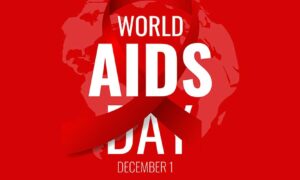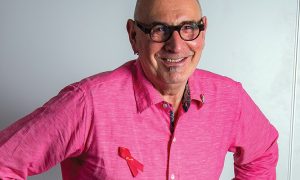Living with HIV is a new monthly column exploring some of the issues facing gay men living with the virus today. Jim Fielder, living with HIV since 2014, runs services for gay and bisexual men at charity Positively UK. This time he discusses what it means to be #undetectable.
Dear Jim,
I started HIV treatment a few months ago and my viral load has just become undetectable. I know this is good news and that there is now virtually no risk of me passing on the virus, but I still feel anxious about it and how it will affect my sex life and relationships. Can you help?
Thanks
Josh
Dear Josh,
It’s great news you’re now undetectable. This means that you have a level of virus in your blood that is so low it cannot be detected by the tests used in clinics. Not only does this mean that your body’s immune system is making a full recovery and you should live a long and healthy life, but that you’re no longer able to pass on HIV. That was a great feeling when it happened to me and knowing I was not infectious made me feel a whole lot better about myself.
But reaching the undetectable milestone does raise new concerns and doubts in our minds. We know we’re not cured, but we know we’re basically OK, so it feels like we’re in some kind of no man’s land of neither one thing or the other. And into this space pour the questions. Am I really uninfectious? Do I still need to use condoms? How do I talk about being positive and undetectable with my partners? Do I even need to disclose my new status? Suddenly things don’t feel quite so straightforward…
Let’s start with the facts. In terms of passing on HIV, the science has been building a pretty conclusive case. In 2008 it was claimed, through what has become known as the Swiss Statement, that if you’re on treatment and your viral load has been undetectable for at least six months then you don’t need to use condoms during sex. At the time this caused a lot of controversy, but more recent studies, such as HPTN 052 and the PARTNER study, are now backing this up as fact. The latter followed a group of straight and gay people living with HIV and on meds and their HIV negative partners as they had condomless sex to see whether treatment did prevent transmission. Out of 58,000 instances of sex without condoms, there was not a single case of HIV linked to their partner. Not one. This was an important study because it included a large number of gay couples, showing that treatment prevents transmission via anal sex. This study is ongoing and further results are expected next year, but the take home message is if you have had an undetectable viral load for six months, and you have regular viral load testing showing that you remain undetectable, then the risk of passing on HIV to the other person without a condom is negligible. We can’t say zero risk, but that’s as close to zero as you can get. So whether you do or don’t use condoms, in the end it comes down to the extent to which you and your partner worry about things that happen very rarely.
Before my diagnosis I’d been using condoms fairly religiously (although perhaps not religiously enough), but then after diagnosis and for the first time in my life I realised I didn’t need to avoid getting HIV. This might sound obvious, but it was a much more significant moment than I imagined. The feeling of liberation I have discovered is shared by a lot of HIV positive men. Finally the fear is over and we can get on with the business of having sex the way it was meant to be, which after decades of living through the AIDS epidemic is something very powerful. Unfortunately condomless sex, particularly with multiple partners, leads to increased infection with other STIs and the need for regular antibiotic treatments. This is unhealthy for us, costly for the NHS and if current predictions are anything to go by, the rise of antibiotic resistant strains of STIs could mean that these infections become untreatable. STIs such as hepatitis C can also be more difficult to treat if we’re living with HIV. So we need to find ways of keeping ourselves and our partners healthy and STI free while enjoying our sex lives. This comes down to asking ourselves what kind of sex and relationships we want.
Working out how to talk about our undetectable status can be tricky, particularly as there still appears to be high levels of fear and ignorance about it in the gay community. In a gay sex survey carried out last year by FS Magazine, it was found that 49% didn’t know what undetectable meant. It also showed that high numbers of men, particularly younger men, said they wouldn’t have sex with a positive guy. However, when it was explained to them what undetectable meant, a third of these men reconsidered their stance. This shows that although there remain high levels of ignorance, educating our friends and partners about undetectable viral loads goes a long way to combating stigma and rejection.
Getting yourself informed about your undetectable status and knowing the kind of sex and relationships you want will give you the knowledge and confidence around whether to disclose to your partner, how you talk about it if you choose to do so, and what you decide to tell him. It will also give him the confidence to know he can trust you. He may not take you at your word straight away and might want to go away and make up his own mind. That’s fine. At least you’ve got the ball rolling. In the end you’re both operating from a place of openness and honesty. Where things go from there depends on that magic thing called chemistry, but at least you’ve got off on the right foot.
If you’ve got a question you’d like answered around living with HIV, please email [email protected].

Positively UK provides practical, social and emotional support to people living with HIV through one to one and group support services. All our staff and peer mentors are themselves living with HIV. For more information go to positivelyuk.org.














